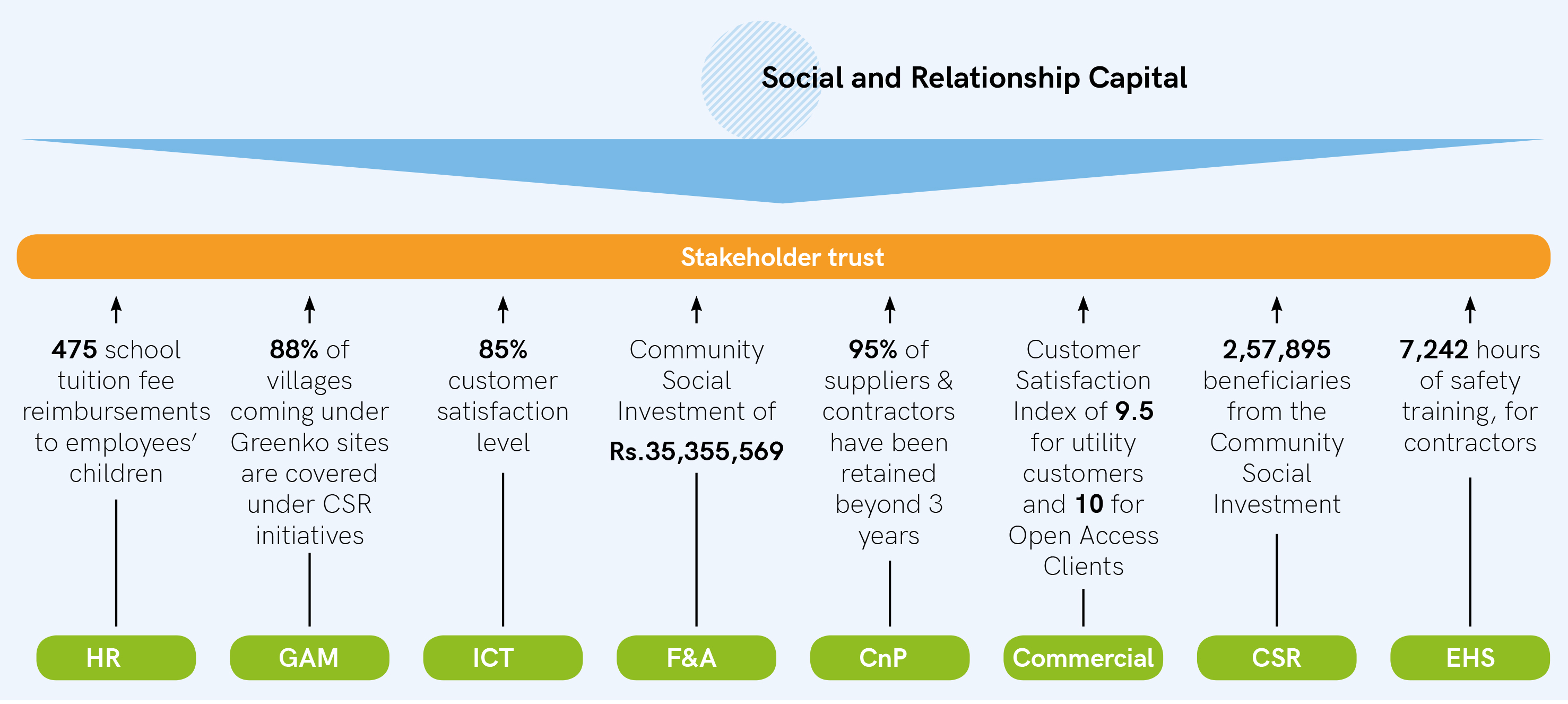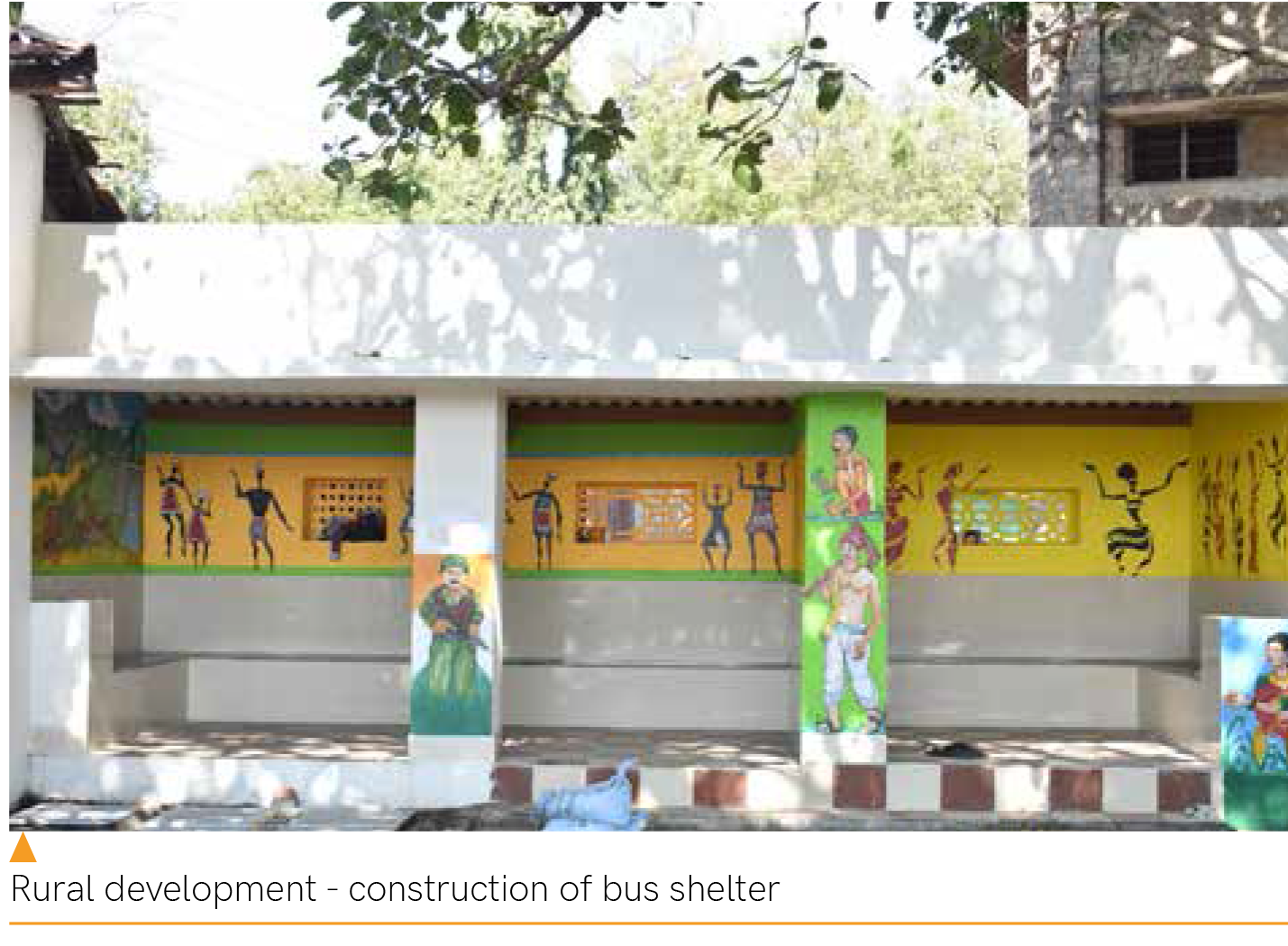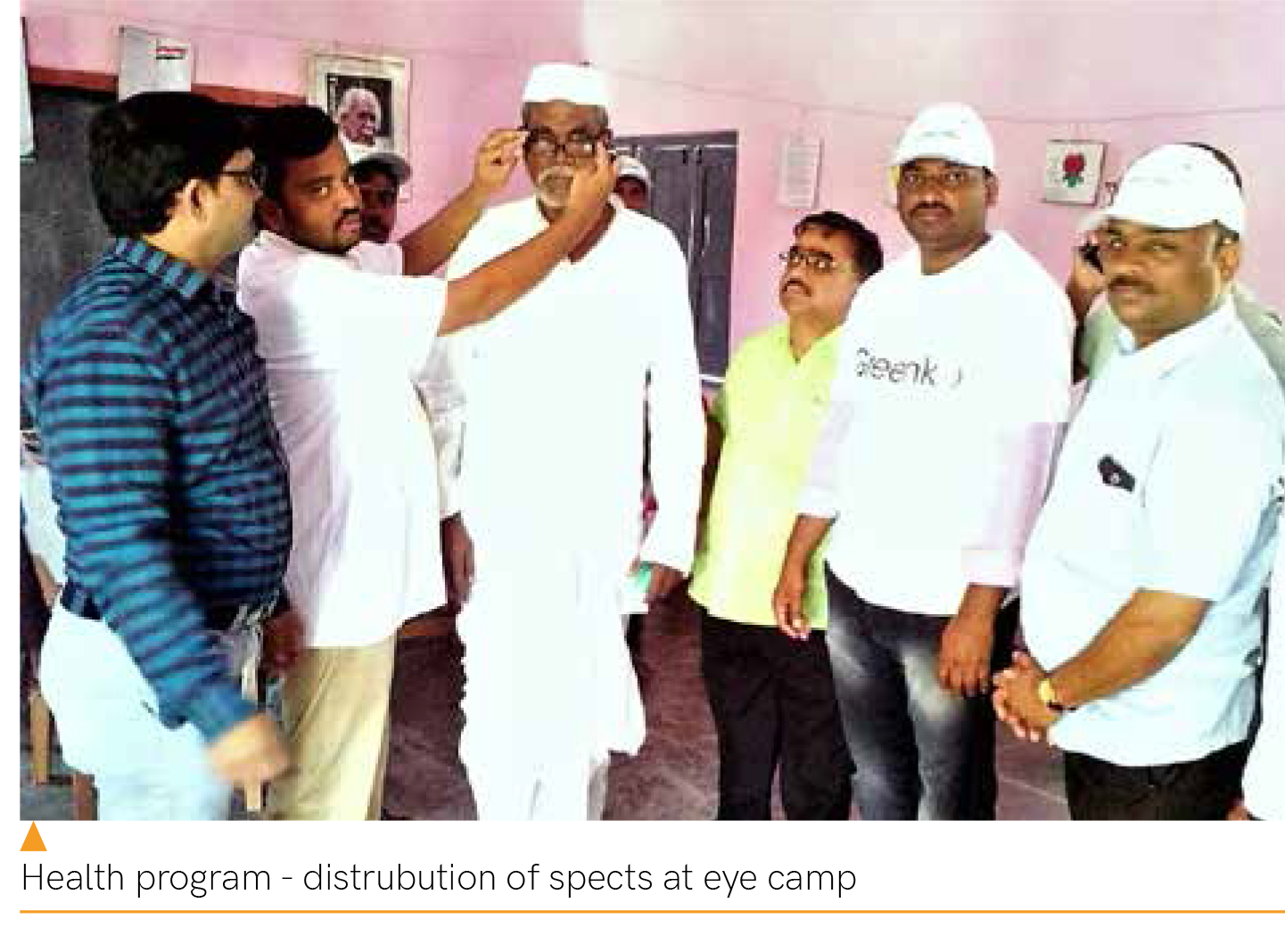As Greenko transitions to GKO 3.0 and 4.0, developing and nurturing qualitatively different relationships and partnerships are imperative. Engagement to shape public policy will be more active but objective and ethical.

We are constantly working towards CSR targets and goals set for 2020. Below are the goals set under the above discussed focus areas that are in line with the SDGs 2030.
Education: To be able to make a difference in about 15,000 students through our interventions in government run schools, among children and the community near our operational presence.
Healthcare: To be able to provide access to quality Health care to over 50,000 people living in communities of our operational presence.
Rural development: To be able to improve the living standards of over 100,000 people mainly by way of improving the basic amenities and rural infrastructure in the neighboring villages.
Livelihoods: To be able to provide an opportunity for improving the livelihoods of over 25,000 people mainly by way of providing skill training in the neighboring villages.
Environment: To be able to plant and care at least 200,000 tree in and around our operational presence and neighboring villages.
Further, we will continue to strengthen our partnerships with suppliers, customers, regulators and the government. For our new projects and initiatives, as we transition to GKO 3.0 and 4.0, we will identify, develop and nurture qualitatively different relationships and partnerships. Our engagement with the public policy will be more active as well as objective and ethical.

